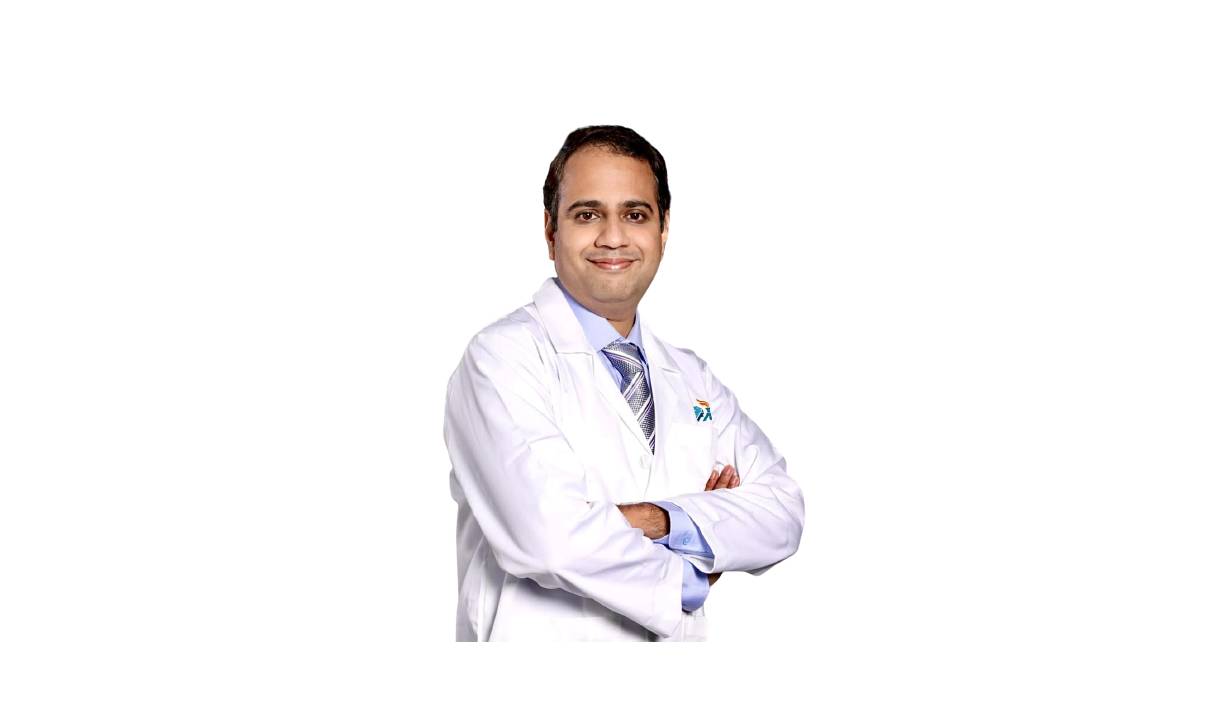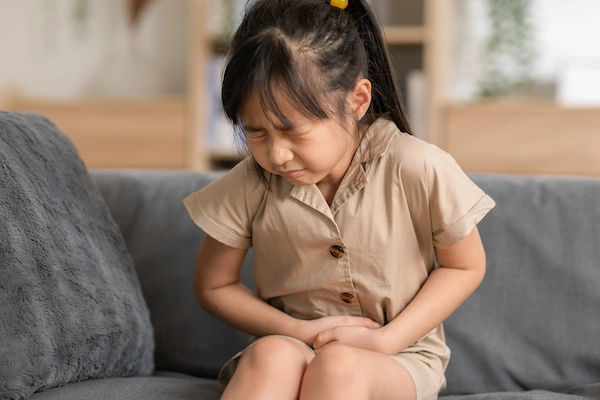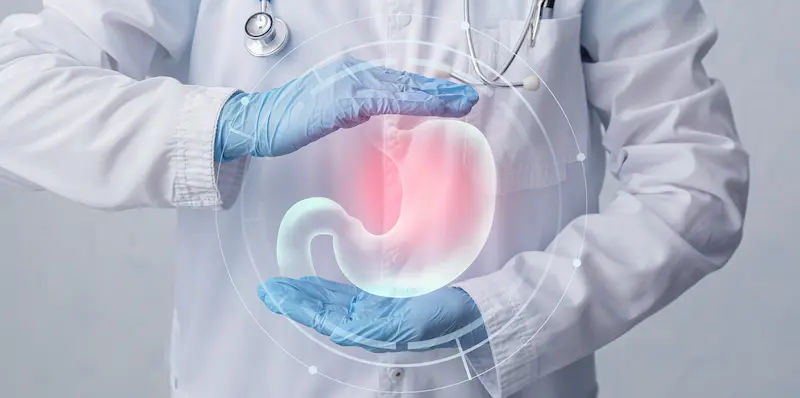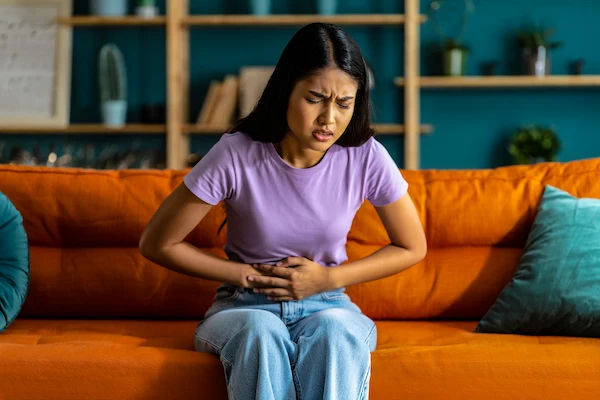Recurrent Abdominal Pain in Children: Parents’ Guide
Know about the recurrent abdominal pain in children, why it occurs in kids, causes, symptoms, diagnosis, treatment options and more.

Written by Dr. Dhankecha Mayank Dineshbhai
Reviewed by Dr. Vasanthasree Nair MBBS
Last updated on 13th Jan, 2026

Introduction
Few things are as worrying as watching your child double over with abdominal pain—especially when it’s recurrent and you’re not sure why. The good news is that most recurrent abdominal pain in children is not caused by a serious disease. In fact, the majority of kids have “functional” abdominal pain, where the gut is sensitive and overreacts to normal triggers like stress, certain foods, or routine illnesses. This guide translates medical evidence into practical steps you can use today. We’ll explain what recurrent abdominal pain means, the most common causes, warning signs that demand attention, and what to expect from a doctor’s visit.
If symptoms persist beyond two weeks or you see red flags, consult a doctor online with Apollo 24|7 for further evaluation.
Consult a Top Gastroenterologist for Personalised Advice
What “Recurrent Abdominal Pain” Means in Kids
Recurrent abdominal pain (RAP) traditionally means at least three episodes of belly pain over at least three months that affect a child’s activities an older definition used to flag patterns rather than a diagnosis in itself. Today, clinicians look beyond the count and focus on how pain affects daily life, whether there are “red flags,” and which pattern (for example, irritable bowel syndrome or abdominal migraine) fits best.
How common is it? Roughly 10–20% of school-age children experience recurrent abdominal pain at some point, with peaks around ages 5–7 and 8–12 years. It may flare during school terms or stressful periods. For most children, pain is functional—meaning the gut is structurally normal, but pain pathways are amplified. Think of the gut “volume knob” turned up: everyday sensations feel painful. This doesn’t mean “it’s all in their head.” The brain–gut axis is real; stress, sleep, and diet influence gut sensitivity.
Why It Happens: Common Causes
Most recurrent abdominal pain in kids falls into functional abdominal pain disorders (FAPD) under the Rome IV criteria: irritable bowel syndrome (IBS), functional dyspepsia, abdominal migraine, and functional abdominal pain–not otherwise specified (FAP-NOS) [2]. These conditions involve altered gut motility, visceral hypersensitivity, and stress responses. Triggers include constipation, viral illnesses, anxiety, poor sleep, and irregular meals.
Organic (medical) causes are less common but important to consider when there are alarm features. Examples include:
- Gastrointestinal: celiac disease, inflammatory bowel disease (IBD), peptic ulcer disease, lactose intolerance, parasitic infections.
- Constipation: very common and often overlooked; hard stools can cause recurrent lower abdominal pain and a feeling of incomplete emptying.
- (in adolescents): menstrual cramps, endometriosis, pregnancy.
- Urinary: urinary tract infection or kidney stones.
- Others: hernias, biliary disease, food allergies (e.g., eosinophilic GI disease), abdominal wall pain.
Why do functional disorders hurt? The brain and gut talk constantly via nerves, hormones, and the microbiome. If that system becomes sensitised after an infection, during stress, or with sleep deprivation, signals are amplified. Kids may show pain with normal gas or stool movements. Reassuringly, these are real pain experiences, and there are effective ways to calm the system and reduce flare-ups.
Red Flags: When to Worry and Seek Care Now
Most recurrent abdominal pain is not dangerous, but certain red flags warrant urgent evaluation to rule out serious conditions.
Emergency signs (go to urgent care/ER):
- Severe, sudden pain with a rigid or swollen abdomen
- Vomiting that is green (bilious), persistent, or blood-stained
- Black, tarry stools or visible blood in stool
- High fever with severe abdominal pain
- Fainting, severe dehydration, or inability to keep fluids down
- Testicular pain/swelling in boys (torsion risk)
Warning signs (book a timely medical review):
- Unintentional weight loss or poor growth; delayed puberty
- Persistent or nocturnal pain wakes the child from sleep
- Chronic diarrhoea, persistent vomiting, or significant constipation unresponsive to simple measures
- Pain localised to the right lower quadrant
- Family history of IBD, celiac disease, or peptic ulcer
- Unexplained fever, joint pains, mouth ulcers, rashes
- Pain is interfering with school participation despite initial steps at home
If symptoms persist beyond two weeks, consult a doctor online with Apollo24|7 for further evaluation. If labs are advised (such as a blood count or inflammation markers), Apollo 24|7 offers convenient home collection for common tests like CBC, CRP, and vitamin D.
How Doctors Diagnose It
Diagnosis starts with a detailed history and physical exam. Expect your clinician to ask:
- Pain pattern: location (around the belly button vs one side), timing (mornings, after meals), duration, severity, what helps/worsens it
- Bowel habits: diarrhoea, constipation, stool frequency/consistency (Bristol stool chart), straining, blood or mucus
- Associated symptoms: nausea, vomiting, headaches (abdominal migraine clues), bloating, early fullness (dyspepsia), urinary symptoms
- Triggers: stress, school days, certain foods, lack of sleep
- Impact: missed school, activity avoidance, anxiety/mood changes, sleep disruption
- Family history: celiac, IBD, ulcers, migraine
- Diet: fibre, fluids, lactose intake
Tests are selective, not routine, in the absence of red flags.
Commonly considered:
- Basic labs: CBC (anaemia, infection), CRP/ESR (inflammation), metabolic panel
- Celiac screen: tissue transglutaminase IgA and total IgA if the child is eating gluten
- Urinalysis (UTI), pregnancy test for adolescents if appropriate
- Stool tests: faecal occult blood; faecal calprotectin if IBD is suspected
- Imaging: Ultrasound may be used if a specific concern arises; CT scans are rarely needed and generally avoided in non-urgent situations to limit radiation.
First-Line, At-Home Care That Really Helps
Before medications or restrictive diets, simple routines can reduce recurrent abdominal pain and help the brain–gut axis reset:
- Return-to-function plan: Aim to keep school attendance and activities as normal as possible. If pain spikes, use brief in-class coping (breathing, hydration, 5-minute walk) rather than going home. Pain often improves when routines stabilise.
- Structured eating: Three balanced meals and 1–2 snacks at regular times. Avoid skipping breakfast. Encourage slow eating and mindful portions. Hydrate well—water over sugary drinks.
- Fibre basics: Soluble fibre (oats, bananas, psyllium) softens stools and may help with IBS symptoms. Increase gradually to avoid bloating. For constipation, belly pain, combine fibre with daily toilet time after meals.
- Sleep: 9–12 hours (depending on age), consistent schedule, no screens 60 minutes before bed. Sleep restores pain thresholds.
- Movement: 30–60 minutes of daily activity to stimulate gut motility and reduce stress.
- Stress skills: 5–10 minutes of daily belly breathing or guided relaxation. Consider a short “worry time” routine to separate worries from bedtime.
If your child’s abdominal pain is recurrent despite these steps, book a pediatric consult with Apollo24|7 to personalise the plan and decide on any tests. Home collection for basic blood work can simplify the process for families.
Managing Specific Patterns: IBS, Dyspepsia, Abdominal Migraine, Constipation
- Pediatric IBS: Belly pain related to bowel movements and changes in stool frequency or consistency. Helpful steps include regular meals, hydration, soluble fibre (psyllium), and physical activity. Some children benefit from a time-limited low-FODMAP trial guided by a dietitian (especially teens) to identify trigger foods, followed by reintroduction. Probiotics like Lactobacillus rhamnosus GG may help some children.
- Functional dyspepsia: Upper abdominal pain or early fullness after small meals, sometimes with nausea. Smaller, more frequent meals, avoiding large high-fat meals, and a short trial of acid suppression can be considered if upper GI symptoms predominate. Screen for red flags such as weight loss or persistent vomiting.
- Abdominal migraine: Episodic midline pain lasting 2–72 hours with associated pallor, nausea, and loss of appetite, and a personal or family history of migraine. Emphasise sleep regularity, hydration, and trigger management (stress, skipped meals). Some children respond to migraine-style approaches (e.g., riboflavin supplementation, prescribed preventives if frequent).
- Constipation-driven pain: The most common and most fixable contributor. Signs include hard stools, skipping days, straining, or large, infrequent stools. A cleanout followed by maintenance with polyethene glycol (PEG) and daily toilet sits after meals can transform symptoms. Pair with fibre goals and routine exercise.
Evidence-Based Therapies
Psychological therapies are medical treatments for the brain–gut axis, not a statement that pain is “psychological.” High-quality evidence shows:
- Cognitive behavioural therapy (CBT): Reduces pain frequency and disability, improves coping, and helps maintain school attendance.
- Gut-directed hypnotherapy: Demonstrated sustained benefits in pediatric functional abdominal pain disorders, often superior to standard care.
Nutrition and supplements:
- Soluble fiber (e.g., psyllium): May reduce IBS-related pain and regulate stools.
- Probiotics: Some strains (e.g., Lactobacillus rhamnosus GG, Bifidobacterium infantis) show modest benefit in reducing pain episodes [1].
- Peppermint oil: Enteric-coated capsules can reduce cramping in IBS; start low and monitor for reflux or heartburn.
Low-FODMAP diet: Can reduce IBS symptoms, particularly bloating and pain, but should be short-term (2–6 weeks) and guided by a pediatric dietitian due to nutritional risks. The key is systematic reintroduction to build a personalised, liberal diet.
Medicines: When and Which to Consider
Medication choices depend on the dominant pattern and are usually adjuncts to lifestyle and behavioural therapies:
- Antispasmodics (e.g., hyoscine/Buscopan, dicyclomine in older teens): Can reduce cramping and urgent pain episodes; use as-needed.
- Laxatives: Polyethene glycol (PEG) is first-line for constipation; stool softeners or stimulant laxatives may be added short-term for cleanouts.
- Acid suppression (H2 blockers or short PPI trial): For functional dyspepsia symptoms when reflux-like symptoms or upper abdominal pain predominate.
- Cyproheptadine: Sometimes used in younger children for functional dyspepsia or abdominal migraine; discuss risks/benefits with your paediatrician.
- Neuromodulators (e.g., low-dose amitriptyline in older teens): Considered by specialists for refractory IBS pain to reduce visceral hypersensitivity.
Avoid unnecessary antibiotics (which can disturb the microbiome) and routine imaging like CT scans in the absence of red flags [1][3]. Medication should target specific symptoms and be reviewed regularly for benefit and side effects.
Tests That Matter (and When)
- Celiac disease testing: If there are red flags (poor growth, chronic diarrhoea, iron-deficiency anaemia, family history) or persistent symptoms, tissue transglutaminase IgA (tTG-IgA) with total IgA is appropriate, while the child continues to eat gluten [1][3]. Do not start a gluten-free diet before testing, or results can be misleading. Apollo24|7 offers home collection for common blood tests, which can be convenient for families.
- Inflammation markers: A CBC and CRP/ESR can screen for anaemia or inflammation. Faecal calprotectin, a stool test, helps distinguish inflammatory bowel disease from functional disorders when IBD is suspected [1][3].
- Helicobacter pylori: Routine testing is not recommended for nonspecific recurrent abdominal pain. Test if there are ulcer symptoms (epigastric pain with bleeding or significant anaemia) or specific indications, and treat only if infection is confirmed [5].
- Imaging: Ultrasound may be used when structural issues are suspected (e.g., gallbladder, kidneys, ovarian cysts). Routine imaging is not needed in typical functional pain; CT is generally avoided to limit radiation.
School, Mental Health, and Long-Term Outlook
School and activities are core to recovery. Collaborate with teachers to:
- Keep attendance high, with brief in-class coping strategies rather than early pickups.
- Provide a hydration pass, a quiet corner, or a short walk during flare-ups.
- Avoid reinforcing sick role behaviours; praise participation and effort.
Mental health: Anxiety and mood symptoms can amplify pain. Brief screening and early skills (CBT, relaxation) reduce both distress and abdominal pain. If your child seems persistently worried or low, consider a therapist experienced in pediatric pain. Apollo 24|7 can help you connect with paediatricians or behavioural health professionals online if local access is limited.
Conclusion
Recurrent abdominal pain can be frustrating and frightening—for children and parents alike. Fortunately, most cases are functional, meaning the gut is structurally normal but highly sensitive. That’s reassuring and empowering because it means there are many ways to dial down that sensitivity. Start with the basics: regular meals and hydration, fibre and movement, solid sleep, and a clear return-to-function plan that keeps your child engaged at school and in activities. Add proven tools like CBT or gut-directed hypnotherapy and consider simple, targeted therapies such as soluble fibre, a suitable probiotic, or enteric-coated peppermint oil. With a steady, compassionate approach and small daily steps, most children regain confidence and comfort, even if occasional flare-ups occur. If your child’s abdominal pain is recurrent or interfering with family life, consult a paediatrician—online with Apollo 24|7 if convenient—to personalise care.
Consult a Top Gastroenterologist for Personalised Advice
Consult a Top Gastroenterologist for Personalised Advice

Dr. Aakash Garg
Gastroenterology/gi Medicine Specialist
12 Years • MBBS, DNB (Medicine), DrNB (Gastroentrology).
Bilaspur
Apollo Hospitals Seepat Road, Bilaspur
(150+ Patients)

Dr. Lekkala Rajesh
Gastroenterology/gi Medicine Specialist
12 Years • MBBS, DNB Internal Medicine DrNB Medical Gastroenterology and Hepatology | Medical Gastroenterology
Secunderabad
Apollo Hospitals Secunderabad, Secunderabad
(75+ Patients)

Dr. Purushottam Vashistha
Gastroenterology/gi Medicine Specialist
17 Years • MBBS, MD, DM ( Gastroenterology)
Mumbai
Apollo Hospitals CBD Belapur, Mumbai
(75+ Patients)

Dr Amey Sonavane
Gastroenterology/gi Medicine Specialist
11 Years • "MBBS, DNB (Internal Medicine) DNB (Gastroenterology) "
Mumbai
Apollo Hospitals CBD Belapur, Mumbai
(100+ Patients)

Dr G Varun Teja
Gastroenterology/gi Medicine Specialist
6 Years • MBBS (Osmania Medical College) MD Internal Medicine (PGIMER, Chandigarh) DM Gastroenterology (AIIMS, New Delhi) Fellowship in Advanced Endoscopy (AIIMS, New Delhi)
Chinagadila
Apollo Hospitals Health City Unit, Chinagadila
(50+ Patients)
Consult a Top Gastroenterologist for Personalised Advice

Dr. Aakash Garg
Gastroenterology/gi Medicine Specialist
12 Years • MBBS, DNB (Medicine), DrNB (Gastroentrology).
Bilaspur
Apollo Hospitals Seepat Road, Bilaspur
(150+ Patients)

Dr. Lekkala Rajesh
Gastroenterology/gi Medicine Specialist
12 Years • MBBS, DNB Internal Medicine DrNB Medical Gastroenterology and Hepatology | Medical Gastroenterology
Secunderabad
Apollo Hospitals Secunderabad, Secunderabad
(75+ Patients)

Dr. Purushottam Vashistha
Gastroenterology/gi Medicine Specialist
17 Years • MBBS, MD, DM ( Gastroenterology)
Mumbai
Apollo Hospitals CBD Belapur, Mumbai
(75+ Patients)

Dr Amey Sonavane
Gastroenterology/gi Medicine Specialist
11 Years • "MBBS, DNB (Internal Medicine) DNB (Gastroenterology) "
Mumbai
Apollo Hospitals CBD Belapur, Mumbai
(100+ Patients)

Dr G Varun Teja
Gastroenterology/gi Medicine Specialist
6 Years • MBBS (Osmania Medical College) MD Internal Medicine (PGIMER, Chandigarh) DM Gastroenterology (AIIMS, New Delhi) Fellowship in Advanced Endoscopy (AIIMS, New Delhi)
Chinagadila
Apollo Hospitals Health City Unit, Chinagadila
(50+ Patients)
More articles from Stomach Pain
Frequently Asked Questions
What causes recurrent abdominal pain in children most of the time?
Most cases are functional, driven by a sensitive brain–gut axis rather than a structural problem. Common triggers include stress, poor sleep, constipation, and irregular meals. Pediatric irritable bowel syndrome and functional dyspepsia are frequent patterns.
When should I worry about my child’s stomach pain?
Seek urgent care for severe, sudden pain, bilious or bloody vomiting, blood in stool, high fever, or a rigid belly. Book a timely evaluation for weight loss, poor growth, persistent night pain, chronic diarrhoea, or a family history of celiac/IBD. If symptoms persist beyond two weeks, consult a doctor online with Apollo24|7.
Which tests are usually needed?
Without red flags, many children need no tests. If indicated, selective labs (CBC, CRP/ESR), celiac serology (tTG-IgA), urinalysis, or faecal calprotectin may be considered. Imaging is usually unnecessary; CT is rarely needed.
Do probiotics help with chronic belly pain in a child?
Some strains (e.g., Lactobacillus rhamnosus GG, certain Bifidobacteria) can modestly reduce pain episodes in functional abdominal pain disorders. Effects vary; try a time-limited trial and track results.
Is a low-FODMAP diet safe for kids with IBS?
It can help selected teens with IBS, but it should be short-term and guided by a pediatric dietitian to protect nutrition. The goal is to reintroduce foods and personalise a liberal, balanced diet.



